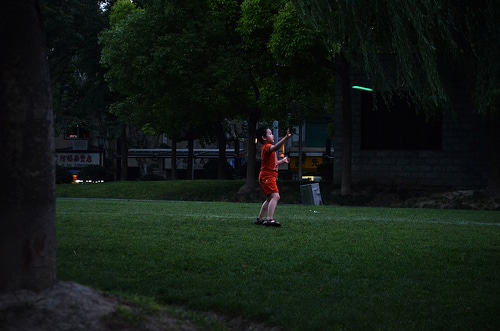On a beautiful warm spring afternoon in Beijing, Liuyin Park is in full bloom. The parks are my favorite place to come when I need to find peace in this busy city, and are often where I feel most at home. I feel especially at home on this day because I am among families that are not unlike my own.
I am volunteering with a support group for families with adolescent or adult children with intellectual or developmental disabilities. This is part of the research project I am doing as a Fulbright scholar on programs for adolescents and young adults with autism or intellectual disabilities in China. Most of the youth exhibit behaviors other people might consider strange. They flap their hands when they get excited and repeat phrases. Some of them can’t talk. To me, they are totally normal. My younger sister has autism and my mother is a special education teacher, so disability has always been a part of my life.
If you had told me three years ago that I would be in Beijing, chatting in Chinese with these parents about my family’s experiences with autism, I would have probably not believed you. I came to Beijing in 2011 to study abroad in the CET Chinese Studies and Service Learning Program. My primary purpose was to study Chinese. After two years of struggling with the language, I knew that actually coming to China was the only way I would ever become competent in communicating in it. I also had dreams of volunteering in China, maybe in something related to global health, since I had experience in that.
My personal China story took a different turn when I met Helen McCabe, an American academic studying autism in China. She introduced me to the issues families with autistic children face here and I was able to visit some autism schools and intern at a disability advocacy organization in Beijing. Although autism awareness among the Chinese public has grown tremendously over the past decade and more and more autism organizations have been established, the challenges are still tremendous. Many families lack access to therapy services or adequate special education for their children, since there are still not enough quality programs; those that exist tend to be very expensive. In addition, there is still a stigma against disability, especially intellectual and developmental disabilities, which can make families very isolated, socially.
However today on their bi-weekly “sports fun day”, this family group, 融爱融乐 (Rongairongle), is taking a big step towards changing the status quo of disability in China. There are over 30 volunteers from local universities who have come to work with our “athletes”. One-on-one, we shoot hoops, bounce on medicine balls, twirl ribbons, and jump rope. The idea is to build relationships and friendships between the athletes and the volunteers. Not only did the athletes get a good opportunity for social interaction, but the volunteers learn to see people with disabilities as individuals and not stereotypes. They learn to see their incredible abilities not just their differences. For example, there was one athlete who came up to me, said “Hello!” and then proceeded to ask me about myself in completely unaccented English. He could also sing everything from Taylor Swift to Bon Jovi. One of the Chinese volunteers commented that the athlete’s English was better than his. Although the volunteer might score higher on the TOEFL, the athlete had an incredible memory and had enough confidence to actually go for it and speak to me.
When I am helping run relay races or leading everyone in the bunny dance, I feel like I am at home playing with my sister. When I chat with families about my experiences I know we are really making a connection. I do not just “了解“ (liaojie) their situation, or understand it on an intellectual level. I am fortunate in that my personal background allows me to “理解” (lijie) them, or truly understand them with my heart. I too have experienced the challenges of having a family member with a autism, and have felt how painful it can be to deal with ignorant or intolerant people. However, it is really humbling to tell these families how my sister is thriving as an adult in a supported employment program. It is also very touching for me to hear them tell me that my story inspires them to dream bigger and fight harder for a more inclusive society for their children.
These interactions may seem small, but they are very meaningful. Changing attitudes that determine how society treats people with disabilities is an incremental process and takes time. As the Chinese would say: ”慢慢来“ (man man lai) – come slowly.


